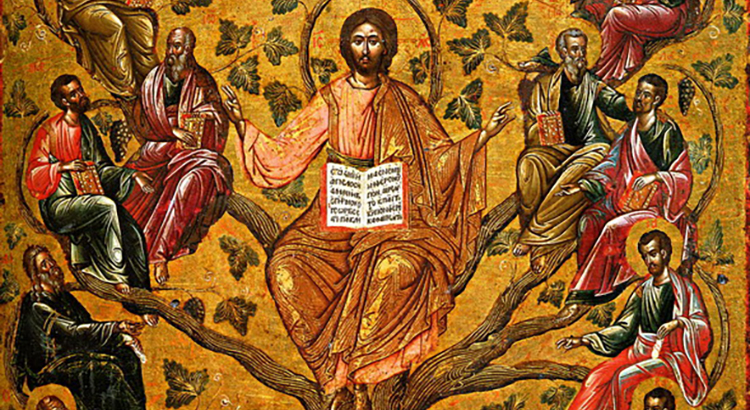Memory of the apostles
Feast of Saint Luke, evangelist and author of the Acts of the Apostles. According to tradition, he was a physician and a painter.
Reading of the Word of God
Alleluia, alleluia, alleluia
If we die with him, we shall live with him,
if with him we endure, with him we shall reign.
Alleluia, alleluia, alleluia
Luke 12,13-21
A man in the crowd said to him, 'Master, tell my brother to give me a share of our inheritance.' He said to him, 'My friend, who appointed me your judge, or the arbitrator of your claims?' Then he said to them, 'Watch, and be on your guard against avarice of any kind, for life does not consist in possessions, even when someone has more than he needs.' Then he told them a parable, 'There was once a rich man who, having had a good harvest from his land, thought to himself, "What am I to do? I have not enough room to store my crops." Then he said, "This is what I will do: I will pull down my barns and build bigger ones, and store all my grain and my goods in them, and I will say to my soul: My soul, you have plenty of good things laid by for many years to come; take things easy, eat, drink, have a good time." But God said to him, "Fool! This very night the demand will be made for your soul; and this hoard of yours, whose will it be then?" So it is when someone stores up treasure for himself instead of becoming rich in the sight of God.'
Alleluia, alleluia, alleluia
If we die with him, we shall live with him,
if with him we endure, with him we shall reign.
Alleluia, alleluia, alleluia
One of Jesus' listeners asks him to intervene and solve a question regarding an inheritance. But Jesus is no master of dividing up assets but of things that concern God and the human heart. So he intervenes not on the inheritance but on the hearts of the two brothers. Indeed avarice, greed and interest for themselves lie in their hearts. Goods are not in and of themselves the cause of evil. The hearts of these brothers- as often ours-were weighed down by desires for money and possession. As Paul reminded Timothy, in such soil divisions and fights cannot but raise: "For the love of money is a root of all kinds of evil" (6:10). Jesus explains this attitude using the parable of the foolish rich man who believed that happiness laid in the accumulation of goods. How can we not think of today's mentality that has made of consumerism the rule of our life. A dictatorship of materialism pushes people hard to spend their lives in obtaining possessions and consuming. Jesus tells that in the life of this rich man there is no space for others, but this is the merciless mindset of avarice -. His worries are only in accumulating goods for himself. The man forgot however an essential thing: that no one owns his life. We can have riches and wealth, but we are not owners of life. Our happiness does not lie in goods but in loving God and our brothers and sisters. There is a fundamental truth for everyone: we were not created to accumulate riches but to love and to be loved. Love, an extraordinary, celestial treasure, different from the earthly goods that can be lost, does not run the risk of being robbed. The fruit of love is forever. Jesus refers back to the biblical tradition that compares good works to a treasure laid up in heaven as an ancient Jewish saying recited: "My fathers accumulated treasures for below and I, I stored up treasures that bore interest." The Gospel invites us to store love more than goods. And it ensures us that love saves.
